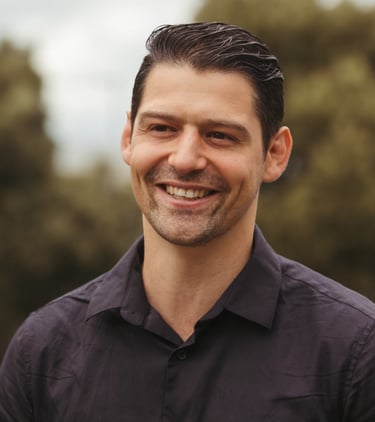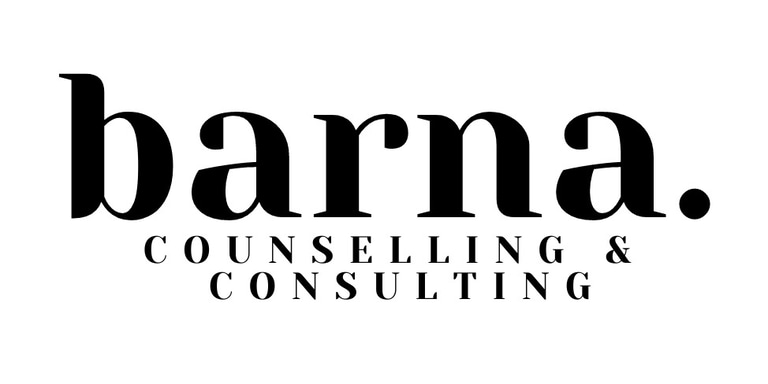
Hello!
Emil is a qualified psychotherapist who has worked with adults in the community, criminal justice (including the courts), and private settings. He has over ten years' counselling experience with a wide range of mental health conditions, including PTSD, generalised anxiety, panic disorder, depressive disorders, anger and aggression, personality disorders, and addiction.
Having overcome his own traumas, he holds to the maxim, practice what you preach, and in doing so, works with you to develop a comprehensive plan to address your goals. He integrates neuroscience and psychotherapy, drawing from the most innovative and evidence-based approaches to meet you where you're at.
In addition to his formal qualifications, Emil continues learning and improvising with various approaches to improve mental health and individual functioning. He's a voracious reader and integrator of his learnings into the therapeutic sphere.
In addition to psychotherapy, Emil hosts The Emil Barna Podcast where he explores psychological themes in an easy-to-digest format, providing practical skills to take home. He also loves writing and has authored a few books from child fiction to self-help and clinical books (you can find more about these here).


Qualifications
EDUCATION
Australian College of Applied Professions
Graduate Diploma (Counselling)
2013-2014
Swinburne University of Technology
Bachelor of Arts (Psychology)
2010-2012
Education
Selected Certifications
Clinical Applications of EFT
mental health academy
2024
Clinical Supervision Training
The Bouverie Centre
2023
A Three-Phased Approach - Working Therapeutically with Complex Trauma Clients
Blue Knot Foundation
2017
Introduction to Motivational Interviewing
Southern Dual Diagnosis
2016
Radical Exposure Tapping (Deactivating the Buttons)
Insite Therapy and Consulting
2015
Mindfulness-Based Interventions Practice
EACH
2015
Australian College of Applied Professions
Master (Counselling & Psychotherapy)
2015-2018
Therapies, explored...
EMDR
This therapy uses dual attention (paying attention to a few things at the same time) and bilateral stimulation (focusing on something from one side to another) to process traumatic memories, fears, and anxieties. It reminds the brain that it is in the present rather than lost in the past or future. It can help in as little as one session and achieve enduring outcomes.
Somatic Experiencing
This body-based psychotherapy is effective in exploring somatic sensations and developing insight into how your body reacts to stress. Highly effective for trauma and stress-related conditions, including anxiety. Techniques are gentle, slow-paced, and cathartic. They help you develop more confidence in yourself, allowing your body to let go of internal discomfort and trauma.
RET
A blend between EMDR and Emotional Freedom Techniques (EFT or 'tapping'), this therapy utilises tapping to process traumatic memories, fears, and anxieties that are re-experienced in the present. As with EMDR, this therapy helps return you to the present moment rather than feeling lost in the past or future. Effective in as little as one session and can achieve enduring outcomes for months and years afterwards.
Polyvagal-Informed Psychotherapy
Not a therapy per se, this model of treatment utilises Polyvagal Theory to help you understand your body and reactions in light of neuroscience. Therapy is psychoeducational and strategies/techniques are taught and explained in terms of how they work on the body to make you feel safe. A highly practical and shame-eliminating therapy approach.
Dream Completion Technique
This technique helps you overcome nightmares, rewriting their endings so that you can work towards a peaceful night's sleep. Effective in as little as one night and change your dreams through the use of deliberate visualisation-based techniques.
Mindfulness and Meditation
This is the foundation of many healing methods today and taps into the brain's natural tendency to rest and connect. Because traditional mindfulness techniques don't work for everybody, Emil ensures he works closely with you to develop nuanced and personalised techniques.
Visualisation Techniques
Whether you visualise something or experience it directly, there's little difference in the brain. Visualisation techniques tap into your brain's capacity to experience positive and transformative imagery through simple and effective techniques. Many therapies rest on this latent ability and Emil combines the most effective parts of these therapies to develop an approach that's unique to you.
Motivational Interviewing
If you're umming and ahhing about whether you even need to make any changes, this therapy is a good fit. It explores underlying drives to change, removes obstacles, and is driven wholly by you and your readiness to take the first steps. It's a person-centred approach that isn't pushy but emphasises your own in-built resources towards change.
CBT
The most researched of all psychotherapies, CBT taps into the mind's capacity to identify automatic thoughts, deeply held beliefs, and entrenched behaviours in order to work toward change. This therapy isn't Emil's default because it requires a lot of homework between sessions, but if that's the best fit for you, it might be your schtick.
Existential Psychotherapy
This framework rests on the belief that four basic 'givens' of existence drive towards meaning in life. A realisation that you're alone, are meaning-seeking, have freedom of will, and that death is always around the corner. It's a philosophical approach and is highly effective for exploring deep themes for those who are disposed to these types of questions.
Schema Therapy
Schemas are deeply entrenched beliefs about yourself, others, and the world. They influence all that you do and the way to approach life. Schema therapy helps you identify these beliefs via an in-depth questionnaire followed by exploration through a report and ongoing sessions. Insight is the bedrock of any successful therapy and schemas are foundational when it comes to understanding yourself.
Psychoanalytic Psychotherapy
This insight-oriented approach (sometimes called psychodynamic psychotherapy) rests on the assumption that we're all driven by various unconscious drives and conflicts that we often suppress and/or are not aware of. This therapy involves deep listening on with the hope of uncovering latent thoughts, inner conflict, and behaviours that often stem from way back in order to help you heal from them.
Note. Emil is not limited to using one therapy—this isn't always the most effective way of healing. He often combines the elements of the therapies described above to fit your unique situation. In doing so, he is conducting treatment informed by the modalities above. Emil has certifications in the therapies and approaches listed under 'Selected Certifications.' Although he may not be formally certified in all therapies listed above, he has accumulated hundreds of hours of study and practice in these approaches and integrated the most effective elements into treatment. If you would like a therapy conducted explicitly by a certified clinician of a specific therapy listed above, please visit the respective referral pathways.
Emil also utilises psychometric testing to help him conceptualise you in a deeper, more meaningful way. The most commonly used measures are the PCL-5 (for PTSD symptoms), the DASS-21 (for depression, anxiety, and stress), the K10 (for anxiety and stress), the AUDIT and DUDIT (for alcohol use and drug use, respectively), the Schema Questionnaire (to measure schemas), a variation of the Adult Attachment Interview (to measure your attachment style as an adult), and the ACES (to measure childhood adverse experiences).
Location
16 Playwright Street,
Clyde North, VIC 3978
